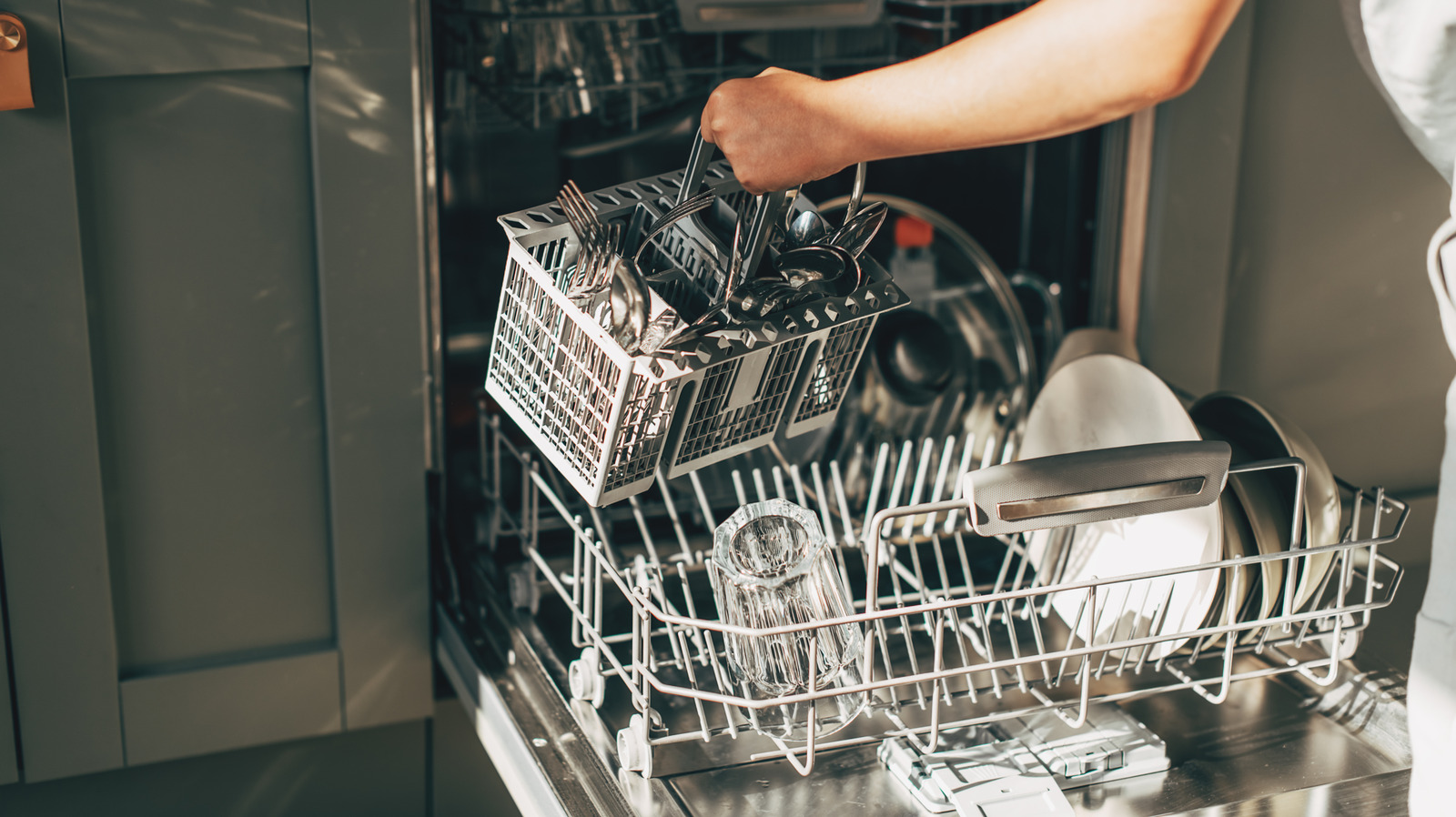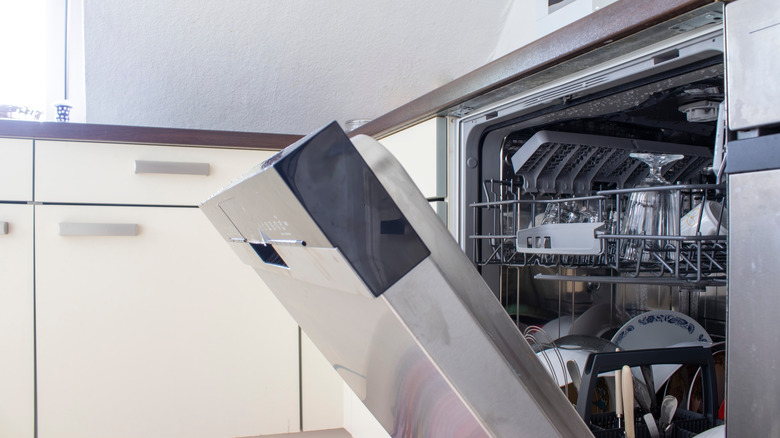For those with a dishwasher, the question of whether or not you should pre-rinse dishes before adding them to the dishwasher has been hotly debated for ages. Finally, we have a definitive answer on the matter: Despite what you may have been taught as a child, pre-rinsing dishes before putting them in the dishwasher is not recommended. Especially in more modern appliances, technology has advanced so that dishwashers have turbidity sensors that measure the water’s soil level, meaning your machine knows when your dishes need a deeper clean. This may sound counterintuitive, but pre-rinsing also prevents some detergents from doing their job. Some of these products contain cleaning enzymes that need dirt and debris to cling onto in order to work properly.
Dishwasher turbidity sensors usually shoot a beam of light through the water. If it’s cloudy, the machine responds with a heavier cleaning cycle. Pre-rinsing beforehand could prevent the water from becoming sufficiently cloudy, thereby inhibiting the dishwasher from running the necessary cycle. Pre-rinsing may also eliminate the grime that the enzymatic detergent clings onto, blocking the enzymes from doing their job. Now, there are some exceptions here: Homes with dishwashers manufactured before 2002 may want to pre-rinse their dishes, as these machines’ technology predates turbidity sensors.
Maximizing the efficiency and effectiveness of your dishwasher
While we generally advise against pre-rinsing your dishes, we do suggest scraping off larger debris to lessen the chance of your dishwasher’s filter and spray arms getting clogged. Running a used lemon through a dishwasher load can also boost the cleaning process — lemons are natural cleaners thanks to their citric acid, which acts as an antibacterial and antiseptic agent. Best of all, you can place them on the top rack right alongside your dishes.
This may seem like a no-brainer, but the way you load your dishwasher can also affect its performance. For example, the position of your pans may block the appliance’s jet streams from reaching your other dishes. Of course, you’ll want to wash a full load of dishes to make the most of each cycle, but overloading the racks may cause dishes to block one another from getting a proper clean.
Additionally, keeping up with the dishwasher’s maintenance schedule is an important factor. Fortunately, this is a simple task: Just clean the filter and spray arms regularly to prevent any build-up. You can even run your dishwasher to clean the inside using baking soda and vinegar. This will help prevent poor performance and, at the very least, eliminate foul odors that may otherwise develop in the machine over time.






